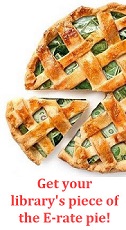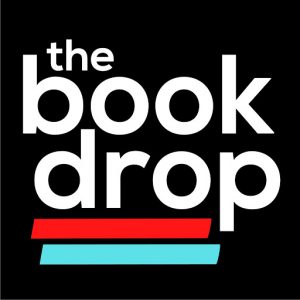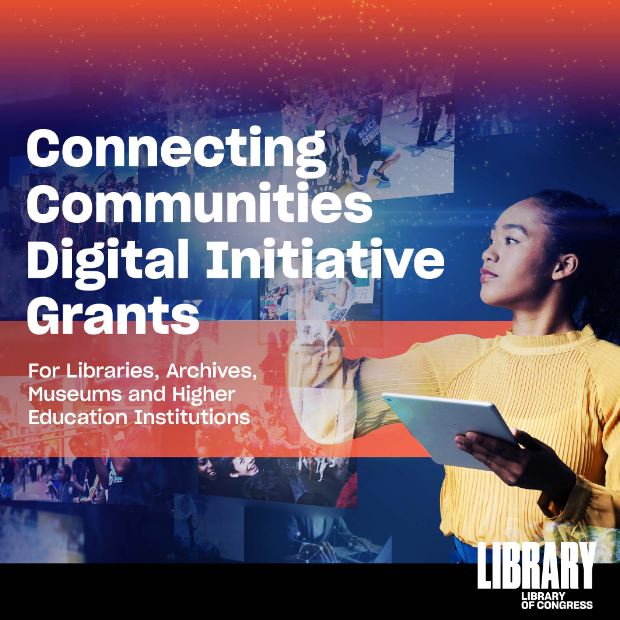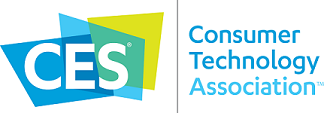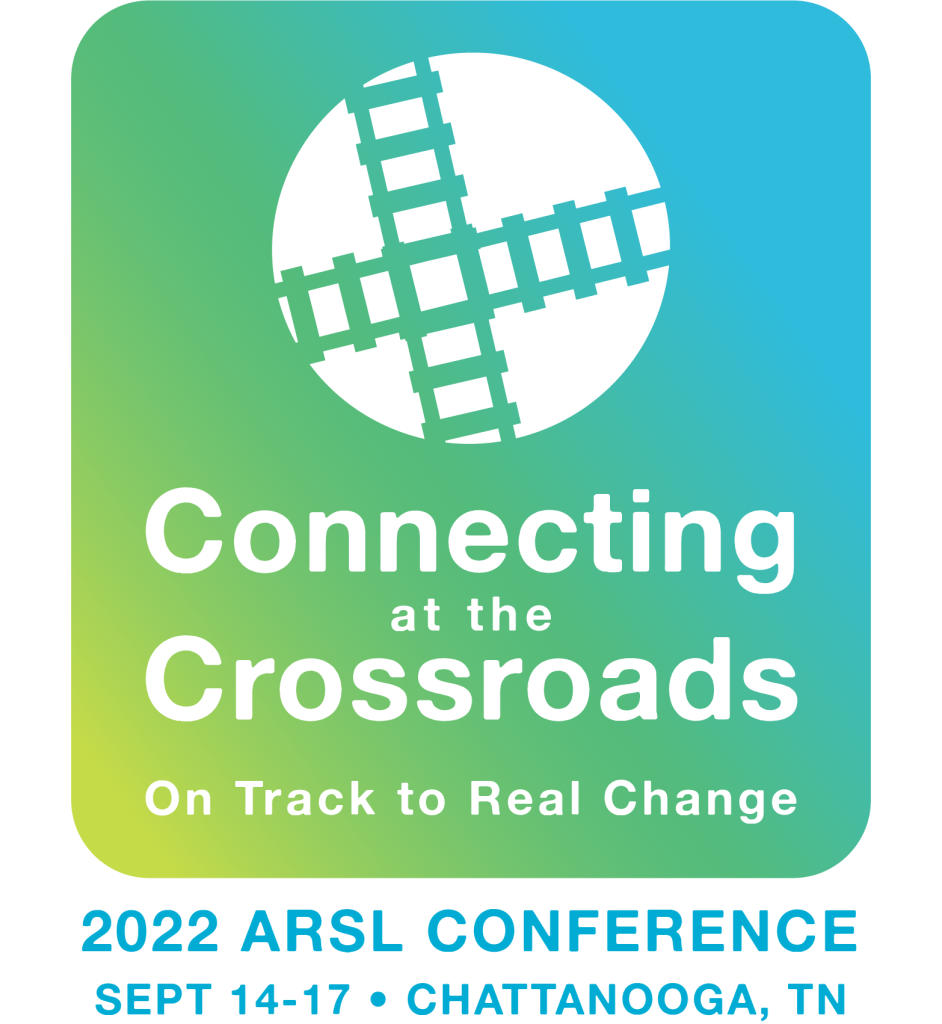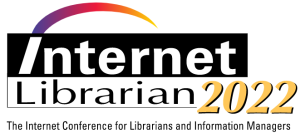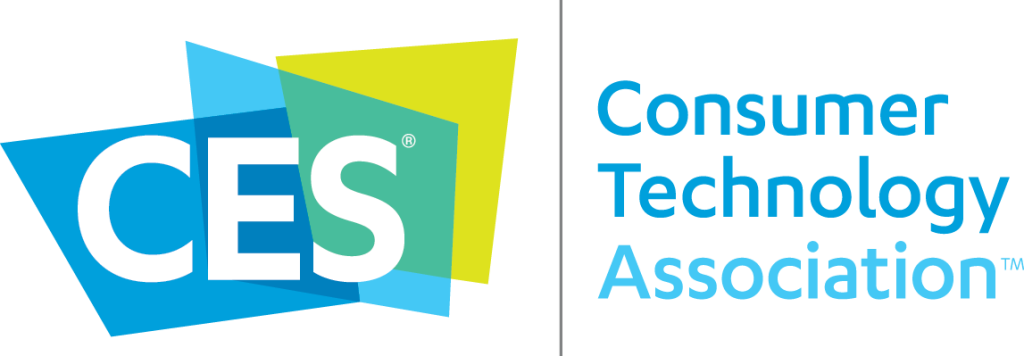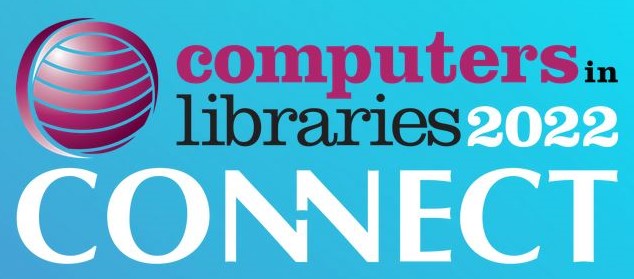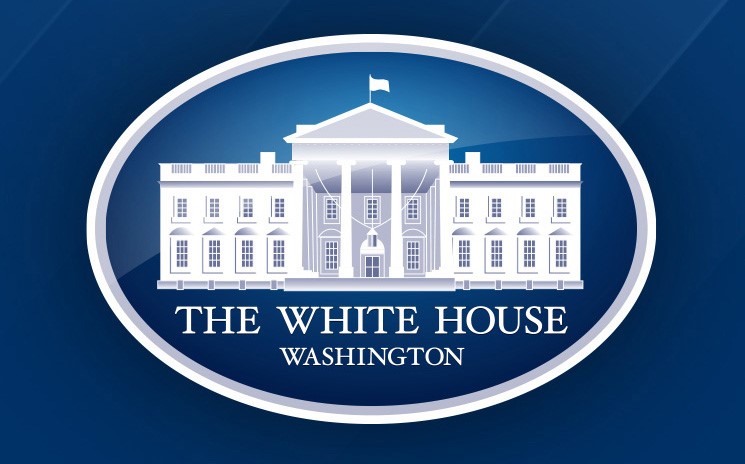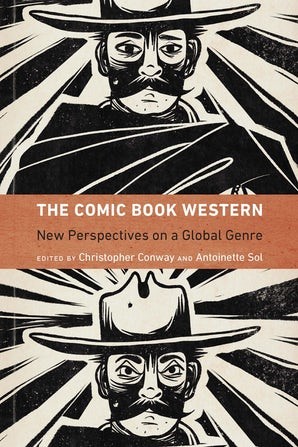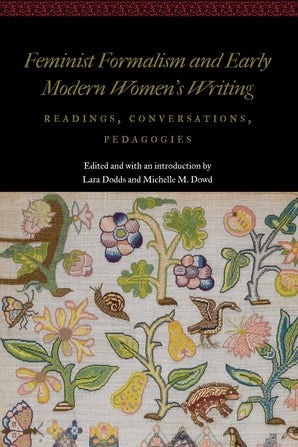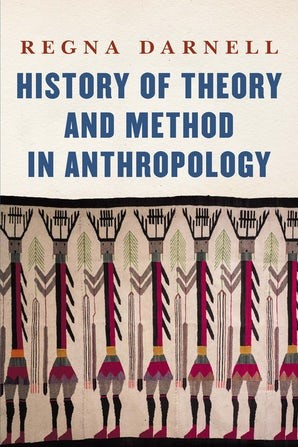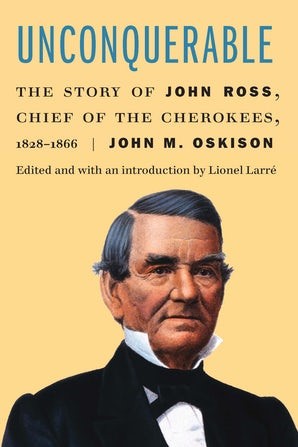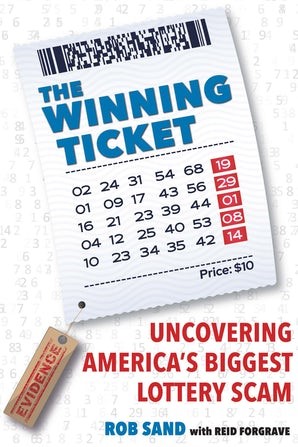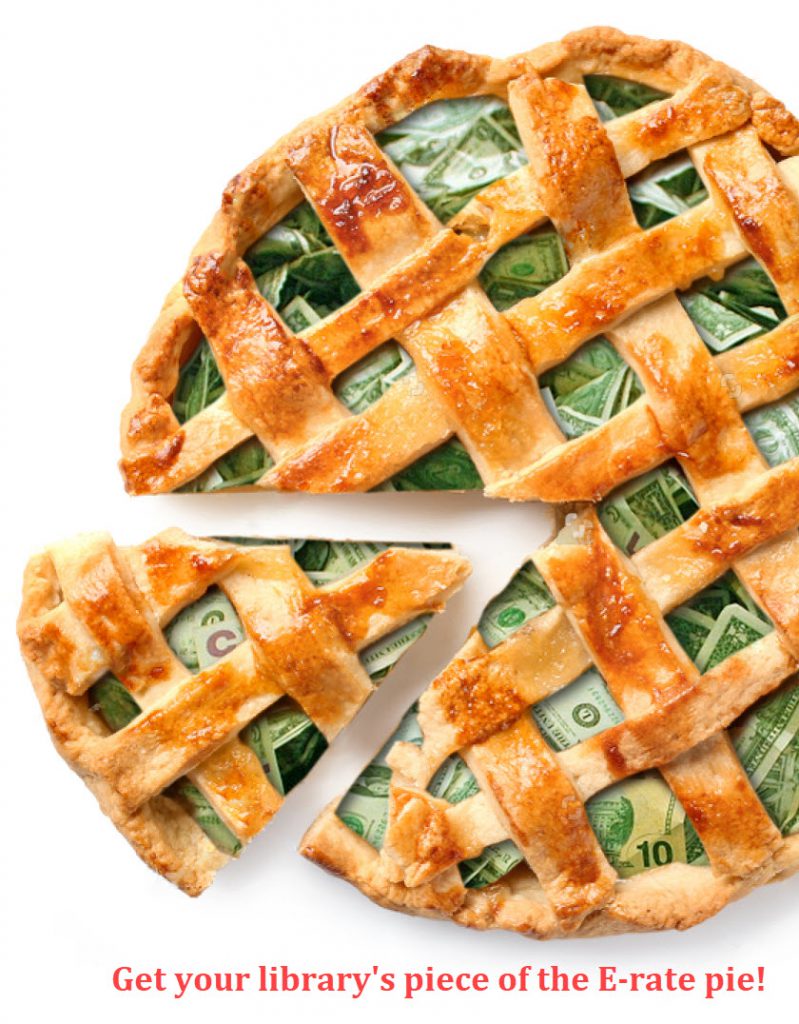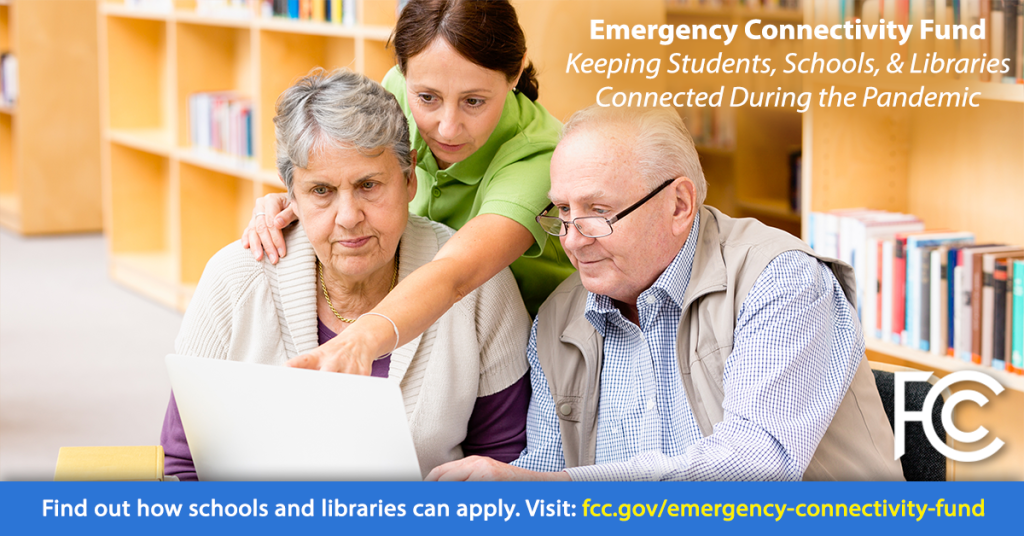Search the Blog
Categories
- Books & Reading
- Broadband Buzz
- Census
- Education & Training
- General
- Grants
- Information Resources
- Library Management
- Nebraska Center for the Book
- Nebraska Memories
- Now hiring @ your library
- Preservation
- Pretty Sweet Tech
- Programming
- Public Library Boards of Trustees
- Public Relations
- Talking Book & Braille Service (TBBS)
- Technology
- Uncategorized
- What's Up Doc / Govdocs
- Youth Services
Archives
Subscribe
Category Archives: Technology
NewsBank Trial Access Through October 22, 2022
NewsBank is a web-based subscription service that offers library access to current and archival content from newspapers, newswires, transcripts, and other publications. They have agreed to offer Nebraska libraries trial access to the following resources through October 22, 2022:
- Access World News (covers 1980-present; contains over 13K global sources, including Lincoln Journal Star and Omaha World Herald)
- America’s Historical Newspapers & Timeline (covers 1690-2000, includes 448 U.S. Newspapers)
- Black Life in America
- Hispanic Life in America
- ResearchRocket (Primary)
Trial access instructions, including product login URLs and a temporary username and password, were distributed via a September 15, 2022 message to the TRIAL mailing list. Nebraska librarians who didn’t receive this information or who would like to have it sent to them again can email Susan Knisely.
Note: If you are a Nebraska librarian and you’d like to receive future database trial announcements directly in your email inbox, please make sure you are signed up for the Nebraska Library Commission’s TRIAL mailing list.
Posted in Technology
Leave a comment
Call for Speakers: Big Talk From Small Libraries 2023
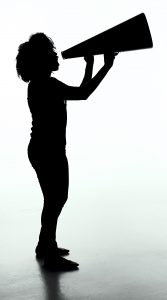
The Call for Speakers for Big Talk From Small Libraries 2023 is now open!
This free one-day online conference is tailored for librarians from small libraries; the smaller the better!
Small libraries of all types – public, academic, school, museum, special, etc. – are encouraged to submit a proposal. We’re looking for seven 50-minute presentations and four 10-minute “lightning round” presentations.
Do you offer a service or program at your small library that other librarians might like to hear about? Have you implemented a new (or old) technology, hosted an event, partnered with others in your community, or just done something really cool? The Big Talk From Small Libraries online conference gives you the opportunity to share what you’ve done, while learning what your colleagues in other small libraries are doing.
Here are some possible topics to get you thinking:
- Unique Libraries
- Special Collections
- New buildings
- Fundraising
- Improved Workflows
- Staff Development
- Advocacy Efforts
- Community Partnerships
- That great thing you’re doing at your library!
Submit your proposal by Friday, December 16, 2022.
Speakers from libraries serving fewer than 10,000 people will be preferred, but presentations from libraries with larger service populations will be considered.
Big Talk From Small Libraries 2023 will be held on Friday, February 24, 2023 between 8:45 a.m. and 5:00 p.m. (CT) via the GoToWebinar online meeting service. Speakers will present their programs from their own desktops. The schedule will accommodate speakers’ time-zones.
This conference is organized and hosted by the Nebraska Library Commission and is co-sponsored by the Association for Rural & Small Libraries.
Photo by Patrick Fore on Unsplash
NCompass Live: E-Rate 101 – Just the Basics
What is E-rate? How can my library benefit from E-rate? How do I apply for E-rate? Bring all of your E-rate questions to ‘E-rate 101: Just the Basics’, next week’s NCompass Live webinar, on Wednesday, August 17 at 10am CT.
E-rate is a federal program that provides discounts to schools and public libraries on the cost of their Internet Access and Connections to make these services more affordable. This includes Broadband, Fiber, and Wi-Fi Internet access as well as Internal Connections, such as wiring, routers, switches, and other network equipment.
This session will be a general overview of the E-rate program and will be useful to libraries who have never applied for E-rate, libraries who are new to E-rate, and current E-rate libraries who just want a short refresher on what E-rate is all about.
IMPORTANT NOTES: The dates and rules in this session will be specific to E-rate Funding Year 2023. Full in-depth E-rate workshops will be held later in the year.
Presenter: Christa Porter, Nebraska’s State E-rate Coordinator for Public Libraries, Nebraska Library Commission.
Upcoming NCompass Live shows:
- Aug. 24 – Team Up with your Community!
- Aug. 31 – Pretty Sweet Tech – WordPress Layout Walkthrough: From the Blank Page
- Sept. 7 – Retirement: Time to Ease on Down, Ease on Down the Road
- Sept. 21 – Letters About Literature 2022

For more information, to register for NCompass Live, or to listen to recordings of past events, go to the NCompass Live webpage.
NCompass Live is broadcast live every Wednesday from 10am – 11am Central Time. Convert to your time zone on the Official U.S. Time website. The show is presented online using the GoToWebinar online meeting service. Before you attend a session, please see the NLC Online Sessions webpage for detailed information about GoToWebinar, including system requirements, firewall permissions, and equipment requirements for computer speakers and microphones.
NCompass Live: Building a Reading Community Through Podcasting
Learn about ‘Building a Reading Community Through Podcasting’ on next week’s NCompass Live webinar, on Wednesday, August 3 at 10am CT.
During this program Omaha Public Library’s The Book Drop podcast team will discuss how they use podcasting as a remote readers’ advisory tool for both patrons and staff. With over 90 episodes under their belts, they’ll share the insight they’ve gained in working across departments, keeping the show fresh, and broadening the conversation around books and reading.
Presenters: Michelle Carlson, Book Club Librarian; David Dick, Adult Services Specialist; Erin Duerr, Readers & Writers Librarian; and Anna Wilcoxon, Diversity & Inclusion Librarian, Omaha Public Library.
Upcoming NCompass Live shows:
- Aug. 10 – Reinventing Programming Kits
- Aug. 24 – Team Up with your Community!
- Aug. 31 – Pretty Sweet Tech
- Sept 7 – Retirement: Time to Ease on Down, Ease on Down the Road
For more information, to register for NCompass Live, or to listen to recordings of past events, go to the NCompass Live webpage.

NCompass Live is broadcast live every Wednesday from 10am – 11am Central Time. Convert to your time zone on the Official U.S. Time website. The show is presented online using the GoToWebinar online meeting service. Before you attend a session, please see the NLC Online Sessions webpage for detailed information about GoToWebinar, including system requirements, firewall permissions, and equipment requirements for computer speakers and microphones.
Library of Congress Connecting Communities Digital Initiative (CCDI) Grants – Applications Open
For more grants like this one, check out the NLC’s Grant Opportunities for Nebraska Libraries.
Applications are open for the second round of funding in the Library of Congress Connecting Communities Digital Initiative grant program.
These grants will support libraries, archives, museums and higher education institutions to create projects that remix and reuse the Library’s digital collections in creative and imaginative ways. In addition, these projects must center the lives, experiences and perspectives of Black, Indigenous, Hispanic or Latino, Asian American and Pacific Islander and/or other communities of color in the 50 U.S. states, the District of Columbia, territories and commonwealths (Puerto Rico, Northern Mariana Islands, Guam, American Samoa, U.S. Virgin Islands). This program is part of the larger Of the People initiative funded by the Mellon Foundation that creates dynamic opportunities for more people to engage with the Library.
Applications are due by 12:00pm (noon) Eastern Standard Time on September 30, 2022 – extended to October 7, 2022.
Support materials for applicants can be found on the application pages for Libraries, Archives, Museums and for Higher Education Institutions, and will be updated as more resources become available.
The Library intends to award up to three Libraries, Archives, Museums grants and up to three Higher Education grants. The awards will be up to $50,000 for each grant and will support projects of up to 12 months in length.
Formal notices of funding opportunity for both libraries, archives, museums and higher education institutions can be found at the Of the People website and on Grants.gov:
Posted in Grants, Technology
Leave a comment
NCompass Live: Pretty Sweet Tech: CES 2022 and Libraries
Learn about opportunities to bring new technology to your library on next week’s Pretty Sweet Tech NCompass Live webinar, ‘CES 2022 and Libraries’, on Wednesday, July 27 at 10am CT.
Special monthly episodes of NCompass Live! Join the NLC’s Technology Innovation Librarian, Amanda Sweet, as she guides us through the world of library-related Pretty Sweet Tech.
The Consumer Electronics Show (CES) is one of the largest technology trade shows of its kind, featuring new product releases, updates, and a chance to experience the latest and greatest technologies from companies big and small. Join Brian Pichman of the Evolve Project who attends the show to spread the word about libraries to the exhibitors at CES, securing partnerships on behalf of libraries so that libraries may have more opportunities to innovate and bring new technology in for their patrons. Brian will share his experiences at CES 2022, sharing the top trends at CES, cool tech to watch for, and how this plays a role in libraries.
Upcoming NCompass Live shows:
- Aug. 3 – Building a Reading Community Through Podcasting
- Aug. 10 – Reinventing Programming Kits
- Aug. 24 – Team Up with your Community!
- Sept 7 – Retirement: Time to Ease on Down, Ease on Down the Road
For more information, to register for NCompass Live, or to listen to recordings of past events, go to the NCompass Live webpage.

NCompass Live is broadcast live every Wednesday from 10am – 11am Central Time. Convert to your time zone on the Official U.S. Time website. The show is presented online using the GoToWebinar online meeting service. Before you attend a session, please see the NLC Online Sessions webpage for detailed information about GoToWebinar, including system requirements, firewall permissions, and equipment requirements for computer speakers and microphones.
Posted in Education & Training, Pretty Sweet Tech, Technology
Tagged CES2022, NCompLive, prettysweettech
Leave a comment
Book Briefs: New University of Nebraska Press Books at the Nebraska Publications Clearinghouse
The Nebraska Publications Clearinghouse receives documents every month from all Nebraska state agencies, including the University of Nebraska Press (UNP). Each month we will be showcasing the UNP books that the Clearinghouse has received.
UNP books, as well as all Nebraska state documents, are available for checkout by libraries and librarians for their patrons.
Here are the UNP books the Clearinghouse received in May and June, 2022:

A Frail Liberty : Probationary Citizens in the French and Haitian Revolutions, by Tessie P. Liu ; Series: France Overseas: Studies in Empire and Decolonization
A Frail Liberty traces the paradoxical actions of the first French abolitionist society, the Société des Amis des Noirs (Society of the Friends of Blacks), at the juncture of two unprecedented achievements of the revolutionary era: the extension of full rights of citizenship to qualifying free men of color in 1792 and the emancipation decree of 1794 that simultaneously declared the formerly enslaved to be citizens of France. This society helped form the revolution’s notion of color-blind equality yet did not protest the pro-slavery attack on the new citizens of France. Tessie P. Liu prioritizes the understanding of the elite insiders’ vision of equality as crucial to understanding this dualism.
By documenting the link between outright exclusion and political inclusion and emphasizing that a nation’s perceived qualifications for citizenship formulate a particular conception of racial equality, Liu argues that the treatment and status distinctions between free people of color and the formerly enslaved parallel the infamous divide between “active” and “passive” citizens. These two populations of colonial citizens with African ancestry then must be considered part of the normative operations of French citizenship at the time. Uniquely locating racial differentiation in the French and Haitian revolutions within the logic and structures of political representation, Liu deepens the conversation regarding race as a civic identity within democratic societies.

A Woman of Adventure : The Life and Times of First Lady Lou Henry Hoover, by Annette B. Dunlap.
When Lou Henry married Herbert Hoover in February 1899, she looked forward to a partnership of equality and a life of adventure. She could fire a rifle and sit a horse as well as any man. The Quaker community of Whittier, California, where she lived as a teen, reinforced the egalitarian spirit of her upbringing. But history had other ideas for Lou Henry Hoover.
For the first fifteen years of married life, Lou globe-trotted with her husband as he pursued a lucrative career in mining engineering and consulting. World War I not only changed the map of the world, it changed the map of the Hoovers’ marriage. Herbert Hoover’s Commission for the Relief of Belgium launched him into a political career that led to the White House. Lou, who detested the limelight, led a dual life: she supported her husband’s political career, managed their multiple households, and saw to the needs of their family. Behind the scenes, she pursued her own interests.
History has long since forgotten the breadth of her achievements, but Lou Henry Hoover’s powerful legacy endures in the ongoing success of the Girl Scouts, the music and physical therapy degree programs at Stanford University, athletic opportunities for women, and the countless unknown men and women who received an education thanks to Lou’s anonymous financial support.
Conveying Lou’s humor, personality, and intelligence, A Woman of Adventure takes a fresh look at the first lady who preceded Eleanor Roosevelt and her also-extraordinary accomplishments.

Cattle Beet Capital : Making Industrial Agriculture in Northern Colorado, by Michael Weeks.
In 1870 several hundred settlers arrived at a patch of land at the confluence of the South Platte and Cache la Poudre Rivers in Colorado Territory. Their planned agricultural community, which they named Greeley, was centered around small landholdings, shared irrigation, and a variety of market crops. One hundred years later, Greeley was the home of the world’s largest concentrated cattle-feeding operation, with the resources of an entire region directed toward manufacturing beef. How did that transformation happen? Cattle Beet Capital is animated by that question.
Expanding outward from Greeley to all of northern Colorado, Cattle Beet Capital shows how the beet sugar industry came to dominate the region in the early twentieth century through a reciprocal relationship with its growers that supported a healthy and sustainable agriculture while simultaneously exploiting tens of thousands of migrant laborers. Michael Weeks shows how the state provided much of the scaffolding for the industry in the form of tariffs and research that synchronized with the agendas of industry and large farmers. The transformations that led to commercial feedlots began during the 1930s as farmers replaced crop rotations and seasonal livestock operations with densely packed cattle pens, mono-cropped corn, and the products pouring out of agro-industrial labs and factories. Using the lens of the northern Colorado region, Cattle Beet Capital illuminates the historical processes that made our modern food systems.

Creek Internationalism in an Age of Revolution, 1763–1818, by James L. Hill ; Series: Borderlands and Transcultural Studies
Creek Internationalism in an Age of Revolution, 1763–1818 examines how Creek communities and their leaders remained viable geopolitical actors in the trans-Appalachian West well after the American Revolution. The Creeks pursued aggressive and far-reaching diplomacy between 1763 and 1818 to assert their territorial and political sovereignty while thwarting American efforts to establish control over the region. The United States and the Creeks fought to secure recognition from the powers of Europe that would guarantee political and territorial sovereignty: the Creeks fought to maintain their connections to the Atlantic world and preserve their central role in the geopolitics of the trans-Appalachian West, while the American colonies sought first to establish themselves as an independent nation, then to expand borders to secure diplomatic and commercial rights.
Creeks continued to forge useful ties with agents of European empires despite American attempts to circumscribe Creek contact with the outside world. The Creeks’ solicitation of trade and diplomatic channels with British and Spanish colonists in the West Indies, Canada, and various Gulf Coast outposts served key functions for defenders of local autonomy. Native peoples fought to preserve the geopolitical order that dominated the colonial era, making the trans-Appalachian West a kaleidoscope of sovereign peoples where negotiation prevailed. As a result, the United States lacked the ability to impose its will on its Indigenous neighbors, much like the European empires that had preceded them. Hill provides a significant revisionist history of Creek diplomacy and power that fills gaps within the broader study of the Atlantic world and early American history to show how Indigenous power thwarted European empires in North America.

Dirt Persuasion : Civic Environmental Populism and Heartland’s Pipeline Fight, by Derek Moscato.
Dirt Persuasion examines a watershed moment in U.S. environmental politics: the fight over the Keystone XL Pipeline. The complex interplay of resources extraction industries with grassroots environmentalism and advocacy has transformed the role of activists in the contemporary public sphere. Bold Nebraska’s years-long fight against pipeline company TransCanada provides a compelling case study: a contemporary state-level organization that simultaneously challenged political and business leaders in its home state of Nebraska, at the national level in the United States, and in the foreign jurisdiction of Canada.
Dirt Persuasion sheds light not only on the activism practices of social movements but also on the changing environments in which such actions are deployed. The KXL Pipeline fight represents a watershed moment both for U.S. energy politics and in the communication of environmental activism. The rural dimension of this environmental saga is critical: environmentalism must be understood from the perspective of the rural Americans who coexist with one of the planet’s most delicate ecologies. Populism, rhetorical appeals, strategic advocacy framing, and media framing all factor prominently within the pipeline debate—leading to a civic environmental persuasion built on the attributes of narrative, engagement, hyperlocalization, and bipartisanship in order to build broad stakeholder support and influence public policy.

Eye on the World : A Life in International Service, by Anthony C. E. Quainton.
Eye on the World is the autobiography of diplomat Anthony C. E. Quainton, the story of a long and varied life lived in eleven countries on six continents. Rather than a formal history, this is Quainton’s reflection on his interactions with the events of those times, beginning with George VI’s historic visit to North America in 1939, through the years of the Cold War, the efforts to contain and then defeat the Soviet Union, and finally the two decades of uneasy peace that came after the fall of the Berlin Wall. To some of these events Quainton was merely a spectator. In other areas—India, Nicaragua, Kuwait, and Peru—he was actively involved either as a participant in the policy process in Washington or as the senior representative of the United States in those countries.
Spanning his upbringing and education through two decades after his retirement, Quainton describes the expanding horizons of a middle-class boy from the northwest corner of North America as he encountered the complexity of the world in which he spent his professional life. Quainton served in seven different presidential appointments under presidents Gerald Ford, Jimmy Carter, Ronald Reagan, George H. W. Bush, and Bill Clinton. These included four ambassadorships in distinct parts of the world and three assistant secretary–level posts in Washington. This range of geographic and functional assignments was unique in his generation of Foreign Service officers.

In Praise of the Ancestors : Names, Identity, and Memory in Africa and the Americas, by Susan Elizabeth Ramirez ; Series: Borderlands and Transcultural Studies
Apart from collective memories of lived experiences, much of the modern world’s historical sense comes from written sources stored in the archives of the world, and some scholars in the not-so-distant past have described unlettered civilizations as “peoples without history.” In Praise of the Ancestors is a revisionist interpretation of early colonial accounts that reveal incongruities in accepted knowledge about three Native groups.
Susan Elizabeth Ramírez reevaluates three case studies of oral traditions using positional inheritance—a system in which names and titles are inherited from one generation by another and thereby contribute to the formation of collective memories and a group identity. Ramírez begins by examining positional inheritance and perpetual kinship among the Kazembes in central Africa from the eighteenth to the mid-twentieth centuries. Next, her analysis moves to the Native groups of the Iroquois Confederation and their practice of using names to memorialize remarkable leaders in the seventeenth and eighteenth centuries. Finally, Ramírez surveys naming practices of the Andeans, based on sixteenth-century manuscript sources and later testimonies found in Spanish and Andean archives, questioning colonial narratives by documenting the use of this alternative system of memory perpetuation, which was initially unrecognized by the Spaniards.
In the process of reexamining the histories of Native peoples on three continents, Ramírez broaches a wider issue: namely, understanding of the nature of knowledge as fundamental to understanding and evaluating the knowledge itself.

The Great Plains, 2nd ed., by Walter Prescott Webb.
This iconic description of the interaction between the vast central plains of the continent and the white Americans who moved there in the mid-nineteenth century has endured as one of the most influential, widely known, and controversial works in western history since its first publication in 1931. Arguing that “the Great Plains environment . . . constitutes a geographic unity whose influences have been so powerful as to put a characteristic mark upon everything that survives within its borders,” Walter Prescott Webb identifies the revolver, barbed wire, and the windmill as technological adaptations that facilitated Anglo conquest of the arid, treeless region. Webb draws on history, anthropology, geography, demographics, climatology, and economics in arguing that the 98th Meridian constitutes an institutional fault line at which “practically every institution that was carried across it was either broken and remade or else greatly altered.”
This new edition of one of the foundational works of western American history features an introduction by Great Plains historian Andrew R. Graybill and a new index and updated design.

Under Prairie Skies : The Plants and Native Peoples of the Northern Plains, by C. Thomas Shay.
In Under Prairie Skies, C. Thomas Shay asks and answers the question, What role did plants play in the lives of early inhabitants of the northern Great Plains? Since humans arrived at the end of the Ice Age, plants played important roles as Native peoples learned which were valuable foods, which held medicinal value, and which were best for crafts.
Incorporating Native voices, ethnobotanical studies, personal stories, and research techniques, Under Prairie Skies shows how, since the end of the Ice Age, plants have held a central place in the lives of Native peoples. Eventually some groups cultivated seed-bearing annuals and, later, fields of maize and other crops. Throughout history, their lives became linked with the land, both materially and spiritually.
**Pictures and Synopses courtesy of University of Nebraska Press.
NCompass Live: Bring Free Tech Programs to Older Nebraskans
Learn how to access Senior Planet resources and bring them to your community on next week’s NCompass Live webinar on Wednesday, July 6 at 10am CT.
Senior Planet from AARP‘s technology training classes do more than just teach seniors how to use technology: they address marginalization and isolation among older adults. The Senior Planet licensing program trains and supports senior-serving organizations to deliver Senior Planet programs (in-person) to older adults in their area. The program is free of charge, with the goal of bringing world-class technology training to seniors across the country. Join us to learn how to access Senior Planet resources and bring them to your community.
Presenter: Deirdre Lee, Program Coordinator, Licensing, Senior Planet and Older Adults Technology Services (OATS) from AARP.
Upcoming NCompass Live shows:
- July 13 – Talking Book and Braille Service: Continuously Evolving
- July 20 – Learning Opportunities and Resources from WebJunction
- July 27 – Pretty Sweet Tech: CES 2022 and Libraries
- Aug. 3 – Building a Reading Community Through Podcasting
- Aug. 10 – Reinventing Programming Kits
- Aug. 24 – Team Up with your Community!
- Sept 7 – Retirement: Time to Ease on Down, Ease on Down the Road
For more information, to register for NCompass Live, or to listen to recordings of past events, go to the NCompass Live webpage.

NCompass Live is broadcast live every Wednesday from 10am – 11am Central Time. Convert to your time zone on the Official U.S. Time website. The show is presented online using the GoToWebinar online meeting service. Before you attend a session, please see the NLC Online Sessions webpage for detailed information about GoToWebinar, including system requirements, firewall permissions, and equipment requirements for computer speakers and microphones.
ARSL 2022 Conference Early Bird Registration is NOW OPEN!
Registration for both in-person and virtual-only attendance at the 2022 ARSL Conference is open!
Early Bird pricing for in-person attendance will be available through July 26. The in-person conference will be held at the Chattanooga Convention Center, Chattanooga, TN from September 14-17, 2022.
For more information about the conference, visit the 2022 Conference Homepage.
In-Person Early Bird Pricing
- ARSL Members: $275
- Nonmembers: $350
- Advocates, Students, & Retirees*: $225
Virtual-Only Pricing
- ARSL Members: $50
- Nonmembers: $75
- Advocates, Students, & Retirees*: $25
*Must be an ARSL Advocate, Student, or Retiree member.
Internet Librarian 2022 Conference Discount (Oct. 18-20)
The Nebraska Library Commission is offering a group discount to all librarians in Nebraska who attend the 2022 Internet Librarian Conference. This year it will be held at the Monterey Marriott in Monterey, California on October 18-20, 2022. Detailed information about the conference can be found at https://internet-librarian.infotoday.com/2022
As in the past, InfoToday is offering select groups the opportunity to participate in their Group Discount Program. The Gold Pass is available to groups at the discounted rate of $699 (regularly $899 and it is the only pass to include preconference workshops). They are also offering a special rate of $449 for the 3-Day Pass (regular rate is $599). (No discount rates are available for the separately priced preconference workshops.)
To receive the discount:
- Go to the Internet Librarian 2022 Registration page: https://secure.infotoday.com/RegForms/InternetLibrarian/
- Enter priority code 22NLC in the Priority Code field at the top of the form and click on the “Activate Code” button.
- Complete the registration form, checking to be sure the discounted rates appear on the form. (Clicking on the “Activate Code” button should have triggered the rates to update. If you don’t see the discounted rates, please contact Susan Knisely for assistance.)
Deadline: Online registrations can be made until September 23, 2022 to receive the discounted rates. Rates will go up by $20 after the deadline.
Posted in Education & Training, Technology
Leave a comment
NCompass Live: CES 2022 and Libraries
Learn about opportunities to bring new technology to your library from ‘CES 2022 and Libraries’ on next week’s NCompass Live webinar on Wednesday, June 15 at 10am CT.
The Consumer Electronics Show (CES) is one of the largest technology trade shows of its kind, featuring new product releases, updates, and a chance to experience the latest and greatest technologies from companies big and small. Join Brian Pichman of the Evolve Project who attends the show to spread the word about libraries to the exhibitors at CES, securing partnerships on behalf of libraries so that libraries may have more opportunities to innovate and bring new technology in for their patrons. Brian will share his experiences at CES 2022, sharing the top trends at CES, cool tech to watch for, and how this plays a role in libraries.
Upcoming NCompass Live shows:
- June 22 – Retirement: Time to Ease on Down, Ease on Down the Road
- June 29 – Pretty Sweet Tech – What is Meaningful Work, and How Can Libraries Help?
- July 20 – Learning Opportunities and Resources from WebJunction
- August 10 – Reinventing Programming Kits
- August 24 – Team Up with your Community!
For more information, to register for NCompass Live, or to listen to recordings of past events, go to the NCompass Live webpage.

NCompass Live is broadcast live every Wednesday from 10am – 11am Central Time. Convert to your time zone on the Official U.S. Time website. The show is presented online using the GoToWebinar online meeting service. Before you attend a session, please see the NLC Online Sessions webpage for detailed information about GoToWebinar, including system requirements, firewall permissions, and equipment requirements for computer speakers and microphones.
Posted in Education & Training, Technology
Tagged #911Memorial, #911Museum, NCompLive
Leave a comment
Apply Now for the PLA Digital Literacy Workshop Incentive to Expand Digital Literacy Skills in Your Community
For more grants like this one, check out the NLC’s Grant Opportunities for Nebraska Libraries.
Every day community members who lack basic computer knowledge and skills access their local public libraries hoping to complete life tasks many of us take for granted. The Public Library Association (PLA) is proud to partner with AT&T to expand upon its work helping libraries and their communities close the digital divide through new and improved DigitalLearn.org courses and training materials.
Applications are now open for the PLA Digital Literacy Workshop Training Incentive, supported by AT&T!
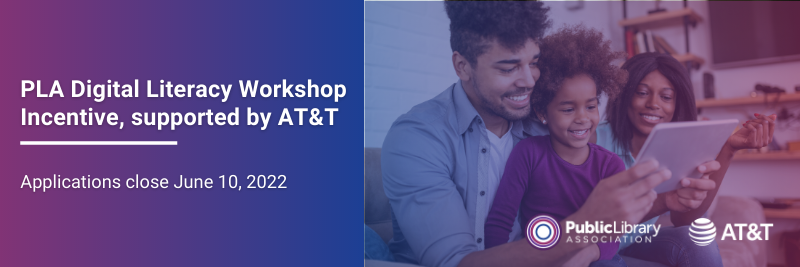
The new incentive program is designed to support library adoption of the new digital literacy courses and training materials, which are freely available in English and Spanish at DigitalLearn.org. All public libraries in the United States and Washington, DC, are eligible to apply for one of two incentive amounts.
- Tier 1 Incentive recipients will receive $4,000 and be required to conduct a minimum of three workshops reaching a total of 18 learners.
- Tier 2 Incentive recipients will receive $7,000 and be required to conduct a minimum of five workshops reaching a minimum of 50 learners.
The application deadline is June 10, 2022, at 11:59 PM Central. Applications will be reviewed and selected by PLA this summer and recipients will be announced in August. Learn more and apply at https://www.ala.org/pla/initiatives/digitalliteracy/incentive.
Reviewers Needed
PLA is also seeking library workers who are interested in serving as peer reviewers for the PLA Digital Literacy Workshop Incentive, supported by AT&T application. Serving as a peer reviewer on a national grant offering is an excellent professional development and member service opportunity that can be added to your resume or CV!
Current ALA/PLA membership is required in order to serve as a peer reviewer for this grant application. Application reviewers will be asked to read and review up to 20 applications between Monday, July 11, 2022, and Monday, July 25, 2022. Each application will take between 10–15 minutes to review. Submit your reviewer volunteer form by Friday, June 3, 2022.
Posted in Education & Training, Grants, Technology
Leave a comment
NCompass Live: Pretty Sweet Tech: Computers in Libraries 2022 Highlights & Trends
Hear the Highlights and Trends from Computers in Libraries 2022 on next week’s ‘Pretty Sweet Tech’ NCompass Live webinar on Wednesday, May 25 at 10am CT.
Special monthly episodes of NCompass Live! Join the NLC’s Technology Innovation Librarian, Amanda Sweet, as she guides us through the world of library-related Pretty Sweet Tech.
Computers in Libraries is the world’s leading technology and innovation conference for librarians! This year, we laughed, we cried, we learned, and good times were had by all. In this session I will cover some of the main trends, highlights, and resources I enjoyed the most in the sessions. So if you weren’t able to make it, or are trying to decide if the Replay Pass is worth getting, this is the session for you!
Here are is a preview of some of the trends/ resources I will cover:
- Hybrid Services: How, When & Why?
- Digital Engagement & Marketing
- Tech Gadget Goodness (It had to be done)
- Collaborations & Partnerships to Expand Services
- Strong & Healthy Teams and Communities
I hope to see you there! As a side note, if you’re looking for more emerging tech trends in the library, check out Computers in Libraries magazine.
Upcoming NCompass Live shows:
- June 1 – The Heartland Honors 9/11 Victims and Survivors
- June 8 – Policies of Yes
- June 15 – CES 2022 and Libraries
- June 22 – Retirement: Time to Ease on Down, Ease on Down the Road
- June 29 – Pretty Sweet Tech
- July 20 – Learning Opportunities and Resources from WebJunction
- August 10 – Reinventing Programming Kits
- August 24 – Team Up with your Community!
For more information, to register for NCompass Live, or to listen to recordings of past events, go to the NCompass Live webpage.

NCompass Live is broadcast live every Wednesday from 10am – 11am Central Time. Convert to your time zone on the Official U.S. Time website. The show is presented online using the GoToWebinar online meeting service. Before you attend a session, please see the NLC Online Sessions webpage for detailed information about GoToWebinar, including system requirements, firewall permissions, and equipment requirements for computer speakers and microphones.
Posted in Education & Training, Pretty Sweet Tech, Programming, Technology
Tagged NCompLive, prettysweettech
Leave a comment
NCompass Live: Digital Literacy Training for Seniors – sponsored by the Nebraska State Unit on Aging
Attend this presentation to learn about this great new resource for your older library patrons, ‘Digital Literacy Training for Seniors’, on next week’s NCompass Live webinar on Wednesday, May 18 at 10am CT.
The Nebraska State Unit on Aging is sponsoring online training for adults aged 60 and over, through a contract with GetSetUp. Over 4 million adults in 160 countries are using this platform, which is designed to help adults get comfortable with their own devices. Training is offered in small live classes. With new skills, adults can reach out to family and friends more easily, meet with their doctor over telehealth, learn a new skill, and socialize. The sky is the limit!
Presenter: Cynthia Brammeier, Administrator, State Unit on Aging, Nebraska Department of Health and Human Services.
Upcoming NCompass Live shows:
- May 25 – Pretty Sweet Tech: Computers in Libraries 2022 Highlights & Trends
- June 1 – The Heartland Honors 9/11 Victims and Survivors
- June 8 – Policies of Yes
- June 15 – CES 2022 and Libraries
- June 22 – Retirement: Time to Ease on Down, Ease on Down the Road
- June 29 – Pretty Sweet Tech
- July 20 – Learning Opportunities and Resources from WebJunction
- August 10 – Reinventing Programming Kits
- August 24 – Team Up with your Community!
For more information, to register for NCompass Live, or to listen to recordings of past events, go to the NCompass Live webpage.

NCompass Live is broadcast live every Wednesday from 10am – 11am Central Time. Convert to your time zone on the Official U.S. Time website. The show is presented online using the GoToWebinar online meeting service. Before you attend a session, please see the NLC Online Sessions webpage for detailed information about GoToWebinar, including system requirements, firewall permissions, and equipment requirements for computer speakers and microphones.
Get Internet : The Affordable Connectivity Program (ACP)
Learn how President Biden is reducing the cost of high-speed internet and find out if you qualify to sign up.
As part of the Bipartisan Infrastructure Law, President Biden and Vice President Harris worked with Democrats, Republicans, and Independents to create the Affordable Connectivity Program (ACP), which provides eligible households $30 per month off their internet bills. To deliver maximum cost savings to families, the Biden-Harris Administration has secured commitments from 20 leading internet providers to offer ACP-eligible households a high-speed internet plan for no more than $30 per month. Eligible families who pair their ACP benefit with one of these plans can receive high-speed internet at no cost.
Find Out If You Qualify
There are three different ways to qualify for the ACP benefit. You are eligible if you meet any one of the three qualifications below:
- Your income is at or below 200% of the Federal Poverty Guidelines (see chart below)
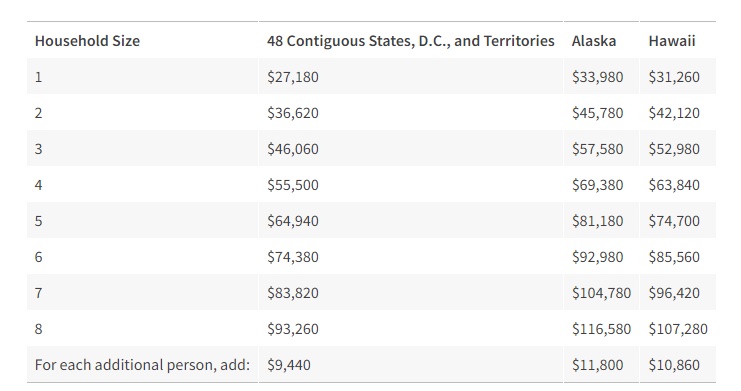
- You or someone in your household participates in one of these other programs:
- Supplemental Nutrition Assistance Program (SNAP), formerly known as Food Stamps
- Medicaid
- Special Supplemental Nutrition Program for Women, Infants, and Children (WIC)
- Supplemental Security Income (SSI)
- Federal Public Housing Assistance (FPHA)
- Veterans Pension and Survivors Benefit
- Free and Reduced-Price School Lunch Program or School Breakfast Program, including at U.S. Department of Agriculture (USDA) Community Eligibility Provision schools
- Federal Pell Grant (received in the current award year)
- Lifeline
- Certain Tribal assistance programs, including Bureau of Indian Affairs General Assistance, Head Start (only households meeting the income qualifying standard), Tribal Temporary Assistance for Needy Families (Tribal TANF), and Food Distribution Program on Indian Reservations
- You meet the eligibility criteria for a participating broadband provider’s existing low-income internet program.
How To Sign Up for the Affordable Connectivity Program
Step 1: Claim Your Affordable Connectivity Program Benefit.
- You can send in an application by mail:
- You can sign up through your existing internet service provider if it participates in the program. Participating companies may ask you to apply through their company’s own application process.
Step 2: Contact a participating internet service provider to choose an internet plan.
- Once your application is approved, contact a participating internet service provider to choose a plan and apply your benefit to that plan.
- More information on how to apply can be found at https://acpbenefit.org/how-to-apply/ or by calling (877) 384-2575.
Participating Service Providers
These internet service providers offer a high-speed internet plan for $30 per month or less. If you apply your ACP benefit to one of these plans, you will have no out-of-pocket cost for internet.
- Allo Communications
- AltaFiber (and Hawaiian Telecom)
- Altice (Optimum and Suddenlink)
- Astound
- AT&T
- Breezeline
- Comcast
- Comporium
- Cox Communications
- Frontier
- IdeaTek
- Jackson Energy Authority
- Mediacom
- MLGC
- Spectrum (Charter Communications)
- Starry
- Verizon (Fios only)
- Vermont Telephone Company
- Vexus Fiber
- Wow! Internet, Cable and TV
You can also choose to apply your ACP benefit to a different provider. There are over 1,300 providers that accept the ACP benefit. To find one near you, visit https://acpbenefit.org/companies-near-me/.
Frequently Asked Questions (FAQs)
What if I also need help getting a tablet or computer?
ACP-eligible households can also receive a one-time discount of up to $100 to purchase a laptop, desktop computer, or tablet from certain participating providers, with a small copay. To get a discounted device, contact a participating provider. The providers offering discounted devices are listed at https://www.fcc.gov/affordable-connectivity-program-providers
How much is my Affordable Connectivity Program benefit?
Most eligible families can receive a benefit of up to $30 per month applied to the cost of their internet service. ACP-eligible households who live on Tribal lands are eligible for a benefit of up to $75 per month.
Are these plans fast?
Yes – they offer a minimum of 100 Mbps download speed, which is fast enough for a typical family of 4 to video conference, stream movies or TV, and more.
Book Briefs: New University of Nebraska Press Books at the Nebraska Publications Clearinghouse
The Nebraska Publications Clearinghouse receives documents every month from all Nebraska state agencies, including the University of Nebraska Press (UNP). Each month we will be showcasing the UNP books that the Clearinghouse has received.
UNP books, as well as all Nebraska state documents, are available for checkout by libraries and librarians for their patrons.
Here are the UNP books the Clearinghouse received in April 2022:
The Comic Book Western : New Perspectives on a Global Genre, Edited by Christopher Conway and Antoinette Sol ; Series: Postwestern Horizons
One of the greatest untold stories about the globalization of the Western is the key role of comics. Few American cultural exports have been as successful globally as the Western, a phenomenon commonly attributed to the widespread circulation of fiction, film, and television. The Comic Book Western centers comics in the Western’s international success. Even as readers consumed translations of American comic book Westerns, they fell in love with local ones that became national or international sensations.
These essays reveal the unexpected cross-pollinations that allowed the Western to emerge from and speak to a wide range of historical and cultural contexts, including Spanish and Italian fascism, Polish historical memory, the ideology of shōjo manga from Japan, British post-apocalypticism and the gothic, race and identity in Canada, Mexican gender politics, French critiques of manifest destiny, and gaucho nationalism in Argentina. The vibrant themes uncovered in The Comic Book Western teach us that international comic book Westerns are not hollow imitations but complex and aesthetically powerful statements about identity, culture, and politics.
Feminist Formalism and Early Modern Women’s Writing. Edited and with an introduction by Lara Dodds and Michelle M. Dowd ; Series: Women and Gender in the Early Modern World
Feminist Formalism and Early Modern Women’s Writing reexamines the relationship between gender and form in early modern women’s writing in essays that elaborate the specific literary strategies of women writers, that examine women’s debts to and appropriations of different literary genres, and that offer practical suggestions for the teaching of women’s texts in several different contexts. Contributors explore the possibility of feminist formalism, a methodology that both attends to the structural, rhetorical, and other formal techniques of a given text and takes gender as a central category of analysis. This collection contends that feminist formalism is a useful tool for scholars of the early modern period and for literary studies more broadly because it marries the traditional questions of formalism—including questions of style, genre, and literary history—with the political and cultural concerns of feminist inquiry.
Contributors reposition works by important women writers—such as Margaret Cavendish, Hester Pulter, Mary Wroth, and Katherine Philips—as central to the development of English literary tradition. By examining a variety of texts written by women, including recipes, emblems, exchanges, and poetry, Feminist Formalism and Early Modern Women’s Writing contributes to existing scholarship on early modern women’s writing while extending it in new and important directions.
History of Theory and Method in Anthropology. By Regna Darnell ; Series: Critical Studies in the History of Anthropology
Regna Darnell offers a critical reexamination of the theoretical orientation of the Americanist tradition, centered on the work of Franz Boas, and the professionalization of anthropology as an academic discipline in the United States in the late nineteenth and early twentieth centuries. History of Theory and Method in Anthropology reveals the theory schools, institutions, and social networks of scholars and fieldworkers primarily interested in the ethnography of North American Indigenous peoples. Darnell’s fifty-year career entails foundational writings in the four fields of the discipline: cultural anthropology, ethnography, linguistics, and physical anthropology.
Leading researchers, theorists, and fieldwork subjects include Claude Lévi-Strauss, Franz Boas, Benjamin Lee Whorf, John Wesley Powell, Frederica de Laguna, Dell Hymes, George Stocking Jr., and Anthony F. C. Wallace, as well as nineteenth-century Native language classifications, ethnography, ethnohistory, social psychology, structuralism, rationalism, biologism, mentalism, race science, human nature and cultural relativism, ethnocentrism, standpoint-based epistemology, collaborative research, and applied anthropology. History of Theory and Method in Anthropology is an essential volume for scholars and undergraduate and graduate students to enter into the history of the inductive theory schools and methodologies of the Americanist tradition and its legacies.
Liverpool to Great Salt Lake : the 1851 Journal of Missionary George D. Watt. Edited by LaJean Purcell Carruth & Ronald G. Watt, Transcription by LaJean Purcell Carruth.
George Darling Watt was the first convert of the Church of Jesus Christ of Latter-day Saints baptized in the British Isles. He emigrated to Nauvoo, Illinois, in 1842. He returned to the British Isles in 1846 as a missionary, accompanied by his wife and young son. He remained there until 1851, when he led a group of emigrant converts to Salt Lake City, Utah. Watt recorded his journey from Liverpool to Chimney Rock in Pitman shorthand. Remarkably, his journal wasn’t discovered until 2001—and is transcribed and appearing for the first time in this book.
Watt’s journal provides an important glimpse into the transatlantic nature of Latter-day Saint migration to Salt Lake City. In 1850 there were more Latter-day Saints in England than in the United States, but by 1890 more than eighty-five thousand converts had crossed the Atlantic and made their way to Salt Lake City. Watt’s 1851 journal opens a window into those overseas, riverine, and overland journeys. His spirited accounts provide wide-ranging details about the births, marriages, deaths, Sunday sermons, interpersonal relations, weather, and food and water shortages of the journey, as well as the many logistical complexities.
Making the Marvelous : Marie-Catherine d’Aulnoy, Henriette-Julie Murat, and the Literary Representation of the Decorative Arts. By Rori Bloom ; Series: Early Modern Cultural Studies
At a moment when France was coming to new prominence in the production of furniture and fashion, the fairy tales of Marie-Catherine d’Aulnoy (1652–1705) and Henriette-Julie de Murat (1670–1716) gave pride of place to richly detailed descriptions of palaces, gardens, clothing, and toys. Through close readings of these authors’ descriptive prose, Rori Bloom shows how these practitioners of a supposedly minor genre made a major contribution as chroniclers and critics of the decorative arts in Old Regime France. Identifying these authors’ embrace of the pretty and the playful as a response to a frequent critique of fairy tales as childish and feminine, Making the Marvelous demonstrates their integration of artisan’s work, child’s play, and the lady’s toilette into a complex vision of creativity. D’Aulnoy and Murat changed the stakes of the fairy tale, Bloom argues: instead of inviting their readers to marvel at the magic that changes rags to riches, they enjoined them to acknowledge the skill that transforms raw materials into beautiful works of art.
Unconquerable : the Story of John Ross, Chief of the Cherokees, 1828-1866. Edited and with an introduction by Lionel Larre’.
Unconquerable is John Milton Oskison’s biography of John Ross, written in the 1930s but unpublished until now. John Ross was principal chief of the Cherokees from 1828 to his death in 1866. Through the story of John Ross, Oskison also tells the story of the Cherokee Nation through some of its most dramatic events in the nineteenth century: the nation’s difficult struggle against Georgia, its forced removal on the Trail of Tears, its internal factionalism, the Civil War, and the reconstruction of the nation in Indian Territory west of the Mississippi.
Ross remains one of the most celebrated Cherokee heroes: his story is an integral part not only of Cherokee history but also of the history of Indian Territory and of the United States. With a critical introduction by noted Oskison scholar Lionel Larré, Unconquerable sheds light on the critical work of an author who deserves more attention from both the public and scholars of Native American studies.
The Winning Ticket : Uncovering America’s Biggest Lottery Scam. By Rob Sand with Reid Forgrave.
The Winning Ticket is an inside look at one of the most complicated yet seat-of-your-pants financial investigations and prosecutions in recent history. Rob Sand, the youngest attorney in his office, was assigned a new case by his boss, who was days away from retirement. Inside the thin accordion binder Sand received was meager evidence that had been gathered over the course of two years by Iowa authorities regarding a suspicious lottery ticket. No one expected the case to go anywhere. No dead body, no shots fired, and no money paid out. Why should they care? There was no certainty that a crime had even been committed. But a mysterious Belizean trust had attempted to claim the $16 million ticket, then decided to forgo the money and maintain anonymity when the State of Iowa demanded to know who had purchased the ticket. Who values anonymity over that much money?
Both a story of small-town America and a true-crime saga about the largest lottery-rigging scheme in American history, The Winning Ticket follows the investigation all the way down the rabbit hole to uncover how Eddie Tipton was able to cheat the system to win jackpots over $16 million and go more than a decade without being caught—until Sand inherited the case.
Just as remarkable as the crime are the real-life characters met along the way: an honest fireworks salesman, a hoodwinked FBI agent, a crooked Texas lawman, a shady attorney representing a Belizean trust, and, yes, Bigfoot hunters. While some of the characters are nearly unbelievable, the everyday themes of integrity and hard work resonate throughout the saga. As the case builds toward a reckoning, The Winning Ticket demonstrates how a new day has dawned in prosecuting complex technological crimes.
**Synopses courtesy of University of Nebraska Press.
Over $7 Million in E-rate Funding Awarded to Nebraska Schools and Public Libraries
On April 23, USAC released Wave 1 of Funding Commitment Decision Letters (FCDLs) for E-rate Funding Year 2022. This first Wave includes $7,109,154.97 in funding commitments for 275 Nebraska school and public library applicants.
Congratulations to all Nebraska schools and public libraries who have been funded!
A list of public libraries who have received E-rate funding is on the NLC E-rate webpage. The 2022 list will be updated as new funding waves are announced. For more details and a list of all E-rate applications for both schools and public libraries, you can use USAC’s E-rate FRN Status Tool FY2016+, which provides funding request data including funding status, funding wave data, and disbursements. View the training video to learn how to use this tool.
If you haven’t received your FCDL yet, don’t panic! There are many more weekly Waves to come as USAC processes more applications. This is just the start of Funding Year 2022, more approvals are coming.
When your FCDL is ready, it will be attached as a printable PDF to the email notifying you that your FCDL has been issued. It will also be available in the Notifications section of your EPC account, but you are no longer required to log into your EPC account to view it.
IMPORTANT: As soon as you receive your FCDL, you should immediately go on to the next step in the E-rate process, filing your Form 486. This form is submitted in your EPC account. Information and instructions on how to do that can be found on the USAC website.
If you have any questions or need any assistance with your public library’s E-rate forms, visit the NLC E-rate webpage or contact Christa Porter, State E-rate Coordinator for Public Libraries, 800-307-2665, 402-471-3107.
NewsBank Trial Access Through May 14, 2022
NewsBank is a web-based subscription service that offers library access to current and archival content from newspapers, newswires, transcripts, and other publications. They have agreed to offer Nebraska libraries trial access to the following resources through May 14, 2022:
- Access World News (covers 1980-present; contains over 13K global sources, including Lincoln Journal Star and Omaha World Herald)
- America’s Historical Newspapers & Timeline (covers 1690-2000, includes 448 U.S. Newspapers)
- Black Life in America
- Hispanic Life in America
- ResearchRocket (Primary)
Trial access instructions, including product login URLs and a temporary username and password, were distributed via an April 12, 2022 message to the TRIAL mailing list. Nebraska librarians who didn’t receive this information or who would like to have it sent to them again can email Susan Knisely.
Note: If you are a Nebraska librarian and you’d like to receive future database trial announcements directly in your email inbox, please make sure you are signed up for the Nebraska Library Commission’s TRIAL mailing list.
Posted in Technology
Leave a comment
Emergency Connectivity Fund – Third Application Filing Window Announced
For more grants like this one, check out the NLC’s Grant Opportunities for Nebraska Libraries.
If you missed the first two application windows for the Emergency Connectivity Fund (ECF), you’re in luck! The FCC has announced a third filing window will open on April 28. It’s a very short window – only 2 weeks. So, if you are considering applying, start preparing now.
IMPORTANT! The Emergency Connectivity Fund (ECF) is strictly for ‘off-site’ use – meaning not at the library. You cannot use the funds to purchase laptops, hotspots, or internet service that will be used within the library.
The purpose of the ECF is to address the homework gap – connecting students, teachers, and library patrons to broadband connections when they are off-campus and not at the library. The funds are to be used to provide connectivity (wi-fi hotspots and service, for example) and devices (laptops/tablets) to your library patrons to use outside of the library. They must be loaned out to your patrons to use at home or elsewhere. They cannot be used to provide internet in the library.
From the ECF announcement:
In view of outstanding demand, the FCC announced that they will open a third application filing window for schools and libraries to request Emergency Connectivity Fund Program support for eligible equipment and up to 12 months of services that will be received or delivered between July 1, 2022 and December 31, 2023 for off-campus use by students, school staff, and library patrons with unmet needs.
The third application filing window will open on Thursday, April 28, 2022 and close on Friday, May 13, 2022, at 11:59 p.m. ET.
Please see the Public Notice (DA 22-309) for additional information about the third application filing window, the service delivery date, and invoice filing deadline applicable to equipment, other non-recurring service, and recurring service requests submitted during this filing window.
Visit the Training page on the Emergency Connectivity Fund Program website to view trainings and access e-learning modules.
To stay informed about the ECF program, sign up for the weekly ECF Newsletters and read the previous newsletters at https://www.emergencyconnectivityfund.org/stay-informed/
Posted in Grants, Technology
Leave a comment
Big Talk From Small Libraries 2022 Recordings Now Available
Recordings of all Big Talk From Small Libraries 2022 sessions are now available!

You will find the recordings and presentations at http://nlcblogs.nebraska.gov/bigtalk/previous-conferences/2022-recordings-presentations/
Don’t forget to complete the conference Evaluation! We’re looking for input from people who attended the live conference and watched the archived recordings.
And mark your calendars now – Big Talk From Small Libraries will be back in 2023! Next year’s conference will be on Friday, February 24, 2023!

